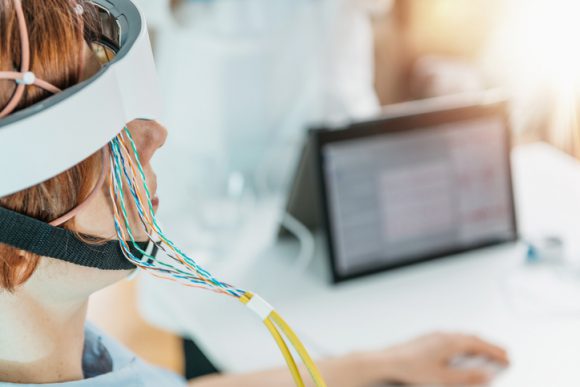Several people want a silent spot to examine, but for some people today the “noise” can engage in an critical function in boosting their understanding possible. A investigation workforce from the University of Idiscowan in Australia studied the impact of “transcranial random noise stimulation” (tRNS) in several environments and found the applicability of this engineering.
Although the word “sounds” is provided, tRNS does not use sound in the common, auditory perception. It uses electrodes attached to the head to make it possible for a weak recent to go by means of selected elements of the mind.
“Our examine reveals that tRNS has potential as a instrument to assist individuals with discovering disabilities,” reported Dr. Ono van der Gronn, investigate director. Getting able to assistance folks with neurological issues.
For illustration, you can use this system for persons with mastering difficulties. The scientists analyzed it on folks with visible impairments owing to stroke or head personal injury. Introducing these stimuli though mastering can lead to greater functionality, a lot quicker studying, and superior focus later on.
formation of a new path
In accordance to van der Gronn, tRNS will work by triggering the mind to form new connections and pathways identified as neuroplasticity. When you understand one thing, improvements in neuroplasticity manifest in the brain, which permits it to discover facts. The instrument for bettering this neuroplasticity is named tRNS.
He stated tRNS had two consequences on the brain. A person was the “sharp” impact which permitted them to accomplish improved when obtaining tRNS and the other was the moderator outcome which confirmed lasting final results. After repeating the visual recognition activity 10 periods with tRNS, they returned right after a whilst and executed the exact same task yet again with no tRNS, displaying better efficiency than the command team that did not use it.
“Endless” possible?
The thought of expanding learning prospective with technologies this kind of as tRNS is controversial. This talent is most appropriate for people today who have mastering issues. But it’s unclear irrespective of whether it can get folks without neurological ailments to new concentrations of intelligence.
“There is opportunity, but there are indications that it will not generate new levels of intelligence,” says van der Grun. There are circumstance reports that have tried out to make improvements to the math capabilities of amazing mathematicians, but have not substantially impacted the general performance of individuals who ended up already the greatest in their field. But it can be applied if you discover a thing new outdoors of your discipline.
“The technology is however in its infancy and has obtain to tRNS in managed screening, but its comfort and stability signifies it has a ton of potential for a assortment of applications,” he claimed.
Presently, experts all around the entire world are checking out the therapeutic potential for a assortment of medical conditions, including inspecting the results of tRNS on notion, performing memory, sensory processing, and other facets of behavior.
The review was printed in Neuroscience. The unique title is “Utilizing Sound for the Finest: The Results of Transcranial Random Noise Stimulation on the Mind and Habits”.
The reporter Lee Bo-hyun with each [email protected]
Copyrightⓒ ‘Honest Understanding for Health’ Comedy.com (https://kormedi.com) / Unauthorized reproduction-redistribution prohibited
–


